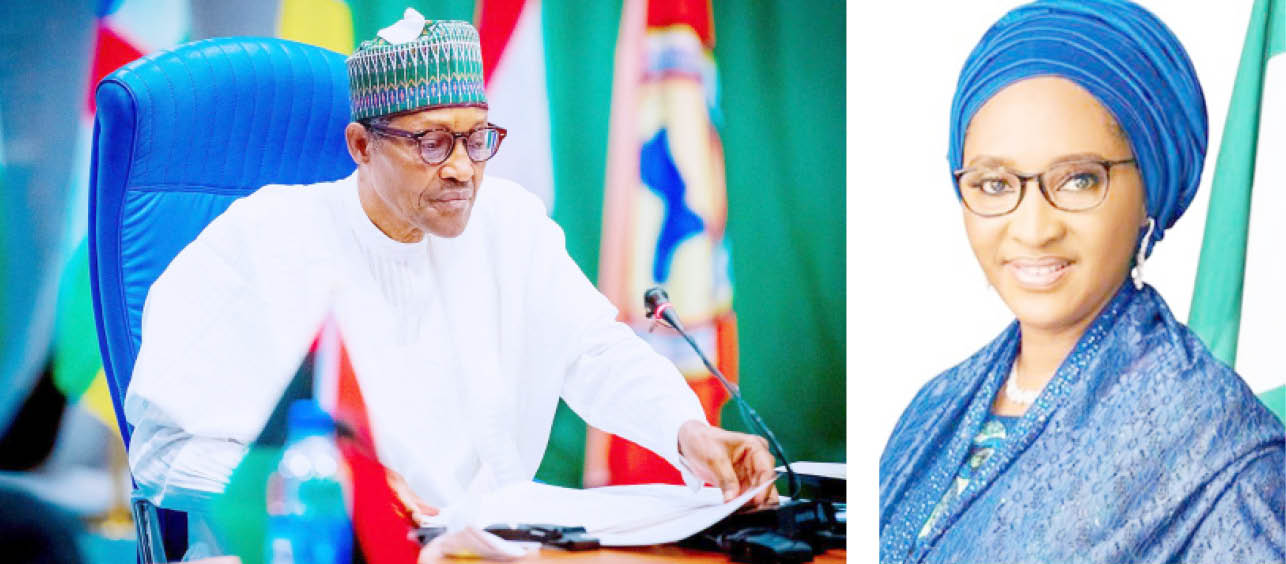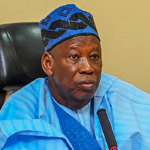There has been a lull in the federal government’s N348trillion National Development Plan, 2021-2025 since President Muhammadu Buhari launched it with fanfare in December 2021.
The plan takes over from the Economic Recovery and Growth Programme, 2017- 2020, which success hasn’t been sterling.
6 issues FG must address before 2023 polls – CDD report
Charles praises Queen’s reign as he is formally confirmed king
The plan was approved by the Federal Executive Council earlier in November 2021. However, it had been extensively interrogated at the 2021 annual conference of the Nigerian Economic Summit. But since the launch, has the plan gained traction? Daily Trust on Sunday takes a look.
One development too many
Nigeria is not lacking in the number of development plans it has designed and implemented, what has lacked is the success of such plans. Virtually all of the country’s close to a dozen plans have ended up not being successfully implemented. And Nigeria’s economy has become worse for it.
From the Structural Adjustment Programme; the National Economic Empowerment and Development Strategy (NEEDS); the Strategy for Attaining the Millennium Development Goals; the 7-Point Agenda, and the Nigeria Vision 20:2020, the story has been the same: these grandiose plans have always fallen short of the objectives outlined in their documents.
For each plan, there is always a specific overriding objective. The Vision 20:2020 was to make the country attain the status of one of the top 20 economies in the world by 2020, but needless to say that didn’t happen.
The latest of such development plan is the Medium-Term National Development Plan (MTNDP), which is designed to be implemented over a period from 2021 to 2025. The size of this plan is so huge that it is projected that by the time it is fully implemented, a total of N348.1trillion would have been spent by both the public and private sectors of the economy.
Broadly, this plan is designed to help Nigeria achieve the following objectives: a broad-based real gross domestic product (GDP) growth rate of 5 per cent on average over the plan period; the creation of 21 million full-time jobs; and ultimately, through the impact of inclusive growth, to pull some 35 million people out of poverty. Ambitious as it were.
The MTNDP, 2021-2025 is anticipated to dovetail into the Nigeria Agenda 2050, which is still in the works.
By the design of the MTNDP, the private sector is expected to occupy the commanding heights of the economy, given that the public sector is projected to provide just N49.7trn or 14.3 per cent of the total outlay, while the bulk of N298.3trn or 85.7 per cent will come from the private sector. Out of the N49.7trn, the federal government is projected to contribute about N30trn, while the states and local governments will contribute about N19.7trn.
With the MTNDP, the government is estimating a broad-based economic growth of about 3.8 per cent on average, driven by non-oil GDP growth of 4 per cent and oil GDP growth of 2.1 per cent and ensure a more competitive non-oil sector; and a more robust and resilient economy that is less dependent on the oil sector.
Speaking about the plan, the Minister of Finance, Budget and National Planning, Dr Zainab Shamsuna Ahmed, said, “In order to have the future we all desire, the Plan is developed to play a sizable role in the product complexity space internationally and adopts measures to easing constraints that have hindered the economy from attaining its potentials, particularly, on the product mapping space.
The Plan, she said, provided for the implementation of major infrastructure and other development projects across the six geo-political zones and the opening up of opportunities for the rural areas to ensure balanced development and increased competitiveness.”
She had also said the National Economic Plan would address developmental challenges in all aspects of the country’s national life and would be driven by the organised private sector while the government creates the enabling environment to facilitate growth and development and aligned to the continental Agenda (AU Agenda 2063) and Global Agenda (Sustainable Development Goals (SDGs), 2030.
Also speaking to the development plan in 2021, the chairman, the Nigerian Economic Summit Group (NESG), Mr Asue Ighodalo, said that “the government is implementing bold social programmes to reduce the number of our poor through interventionist programs. Still, the fact of the matter is poverty eradication, which is not just about providing money. There is a need to prioritise investments in our youth by up-skilling them for the jobs of the future and opening up the social and political space for them to become a positive force for national development,” the NESG noted.
Now, the concern is: How far will this plan go, given the turn of events in the country this year? Both the government and the private sector are currently having it tough following the fall in revenue for the government and private sector operators. How will the government fund its portion of N49.7trn or the equivalent of N9.94trn per annum?
The latest Nigeria’s GDP grew by 3.54 per cent in real terms in the second quarter of 2022 (Q2’22). The NBS stated that the 3.54 per cent GDP growth in Q2’22 showed an increase of 0.44 percentage points relative to 3.11 per cent recorded in Q122.
While the GDP looked up, Nigeria’s revenue and debt profile aren’t as lucky. This might impact the development plan the government needs revenue to fund. But if debt servicing is eating up all of revenues, the economy is left vulnerable, experts said.
The federal government had announced that the cost of the country’s debt servicing had actually eaten up all the revenue earned in the first four months of the year. Debt servicing, according to the federal government, had gulped as much as N1.94trn between January and April this year, while the government retained just N1.63 trn.
The minister of finance, budget and national planning, made this startling revelation during the presentation of Nigeria’s 2023–2025 Medium Term Expenditure Framework and Fiscal Strategy Papers (MTEF/FSP).
A section of the draft of the expenditure framework reads, “The gross oil and gas federation revenue for the full year 2022 was projected at N9.37trn. As at April 30, 2022, N1.23 trn was realised out of the prorata projection of N3.12 trn, representing a mere 39 per cent performance.”
Worse still, Nigeria’s subsidy spending has spiked, thus depleting the little that is of Nigeria’s revenue. Recently, the finance minister said Nigeria spent N18.39billion daily on petrol payments.
Thus, “If you are projecting for the full year, from January to December, it will be N6.715trn. If you are projecting for half a year, it will be 50 per cent of that, 3.375trn. I said earlier in the recommendations that we sent to parliament for consideration on MTEF is half-year, that will be N3.357trn.”
Stemming from the almost zero disposable revenue position of the federal government, the state/local governments dire revenue position, and the low performance of the private sector, there has been no significant fund being injected into the development plan as it were.
Recall too that the Central Bank of Nigeria (CBN), partnering the African Finance Corporation and the Nigerian Sovereign Investment Authority, was to raise N15trn through the infrastructure company (InfraCorp). The company was originally billed to commence in October 2021 but has been delayed, and that fund hasn’t been raised. The fund too, is as anticipated, a component of the development plan. This will also have to tarry a little longer to manifest.
Speaking on the InfraCorp recently, the CBN governor, Mr Godwin Emefiele, had said Nigeria still has a huge gap to fill in infrastructure. “That is why we believe the banking sector must pay attention to providing long-term finance for infrastructure development in the country. With the decline in revenues due to federal and state government because of the drop in crude oil prices, alternative ways of funding infrastructure are critical if we are to generate sustained growth of our economy.
“InfraCorp would enable the use of mostly private capital to support infrastructure investment that will have a multiplier effect on growth across critical sectors. The purpose of the N15Trn being raised is to address some of our infrastructure needs, while providing reasonable returns to investors. We believe this well structured fund can act as a catalyst for growth in the medium and the long run. The support of the banking community will be important in achieving this objective” he said.
This should naturally be an icing on the implementation of the development plan when it happens.
Daily Trust on Sunday cannot establish the exact progress of the implementation of the MTNDP. Our correspondent tried severally to get a clear perspective on the implementation, but the chief implementing government official, the minister of finance, budget and national planning, declined comment on the matter. Several texts sent to her mobile phone were also not returned.
Mr Paul Alaje, the lead economist and enterprise partner at SPM Professionals, told our correspondent recently that it was doubtful for the government to raise N350trn in five years on infrastructure.
He said, “This is because even in the 2022 budget proposal, the federal government is only looking at N5trn for capital expenditure. So, even if you multiply that by 5, you will be looking at N25trn. That may even include borrowing.
“The amount is not feasible. Already, local investors are losing the value of their money to inflation and exchange rate disparity, so by all means, the government should look more to public-private partnerships, which is what it is trying to do. But the funding mechanism has to be smarter than what we are talking about before the private sector can really invest,” he further explained.
He also said the states could not meet the target set for them, adding, “Talking about states contributing N20trn, I also have a lot of concern on that. States are already struggling, with most of them unable to pay salaries, so where will they get N20trn? The authorities should compare the numbers before making up any projection.”
He noted that it was because projections were not properly done that the Economic Recovery and Growth Plan failed, thus the governed should really think through its projections for the 5-year development plan to work.
Another expert, David Akwu of the University of Nigeria Nsukka, is also not excited about the implementation of the plan. He told our correspondent that there is nothing significant to track about nine months of the line in the lifespan of the economic plan.
“If after eight months there is nothing tangible. What is the guarantee that something significant would happen? The MTEF that should last till 2023 hasn’t shown a significant capturing of the development plan in terms of fund allocation. So, when will the money be raised?
“Again, there is no structure on ground to propel that development plan to work as planned on paper. It is built on quicksand, and I am afraid that it might end the same way as previous development plans,” he concluded.




